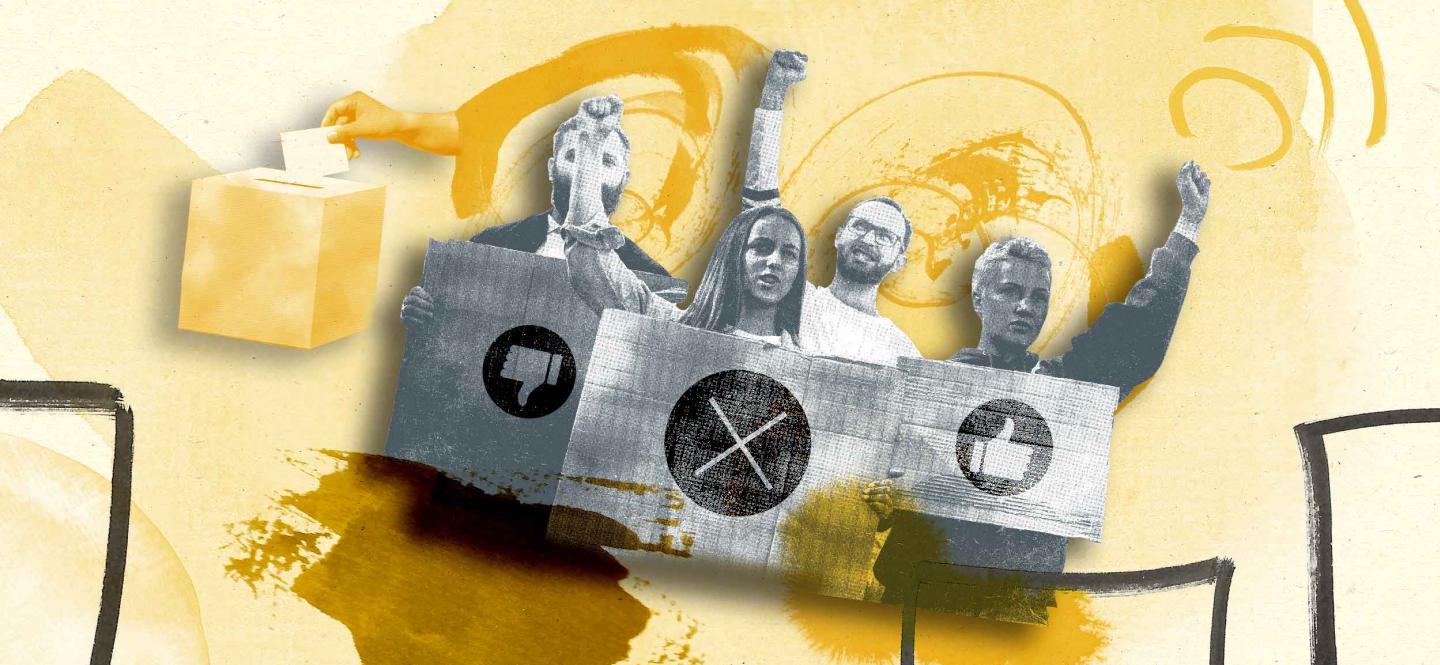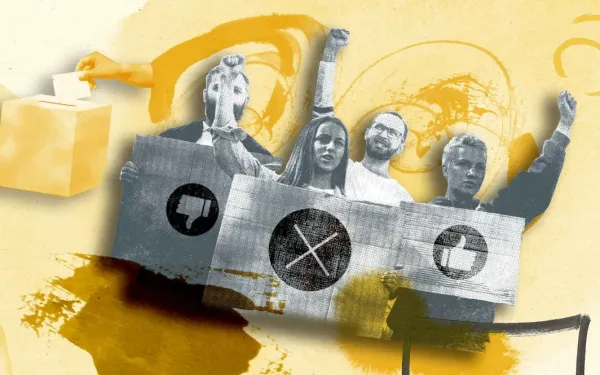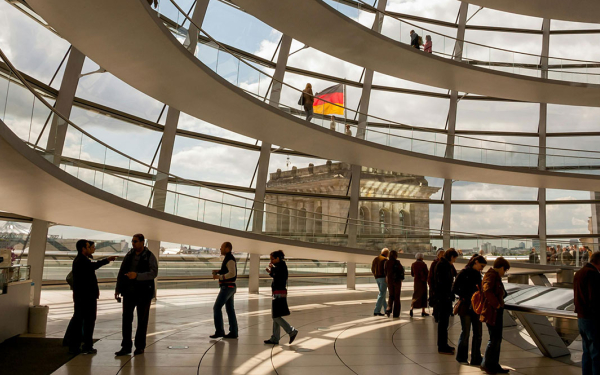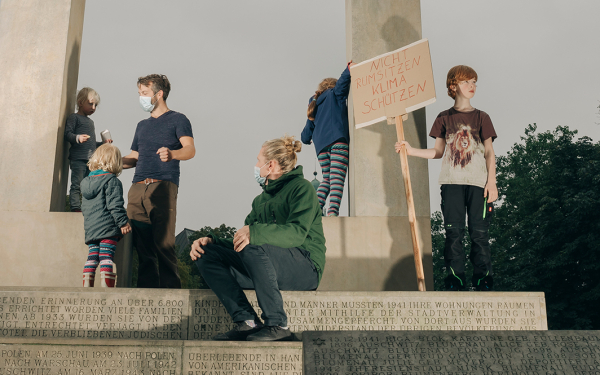Focus on Democratic Change: Nine New Research Projects Receive Funding
#Democracy
VolkswagenStiftung
The VolkswagenStiftung has granted approximately €1.6 million to support nine innovative projects addressing current democratic challenges: from digital deradicalisation strategies and democratic structural reforms to protecting museums from far-right attacks. These projects adopt transdisciplinary approaches with practical relevance.
How can democracy be adapted to withstand rising populism, the fragmentation of the digital space, and diminishing trust in public and political institutions? Through its funding initiative "Transformational Knowledge on Democracies under Change – Transdisciplinary Perspectives", the VolkswagenStiftung invites applicants from the humanities, cultural and social sciences to collaborate with actors from outside academia in transdisciplinary teams to tackle questions surrounding democratic change. The aim is to foster exchange between academic and non‑academic perspectives to develop transformational knowledge that makes an impact.
Nine new projects have now been approved, each funded for one year, combining initial academic insights with practical policy and operational recommendations across domains such as politics, culture, law and civic life:
Funded Projects
- DEMO‑WORK – Strengthening Digital Streetwork in Deradicalisation (Prof. Dr. Nele Wulf, Hochschule Magdeburg-Stendal; Jerome Trebing, Cornelia Heyken, Amadeu-Antonio-Stiftung, Berlin; Christina Dinar, Katholische Hochschule für Sozialwesen Berlin; approx. €190,000)
Religious and political radicalisation pose major challenges for democratic societies. The aim of the project is to collect effective deradicalisation strategies in the digital space and make them available to practitioners. A researcher specialising in digitalisation in social and health care and a non-governmental organisation working in the field of democracy promotion are jointly investigating the extent to which the digital street work approach – based on the concept of outreach social work – can preventively counter radical ideologies. The results will be disseminated via flyers, social media and a freely accessible data collection, supplemented by events with political decision-makers. - Democratic Reforms Between Ideal and Adaptation (Prof. Dr. Florian Grotz, Helmut-Schmidt Universität/Universität der Bundeswehr Hamburg; Dr. Andreas Oldenbourg, Das Progressive Zentrum, Berlin; approx. €186,000)
Many Germans believe that the government is not adequately addressing their problems. The research team, consisting of a political scientist and a representative of a think tank, is investigating how democratic structures can be changed to make them work better. For example, they are examining the electoral system and parliamentary procedures. To develop practical solutions, they are conducting interviews and simulation exercises, which will also be incorporated into a handbook for politicians and important social groups. At the same time, the results will be published in specialist journals. A film and other publications are intended to reach the general public. - Museums Against Right‑Wing Extremism: Recommendations from Research and Practice (Dr. habil. Lukas Otterspeer, Dr. Christoph Haker-Liedtke, Europa-Universität Flensburg; Jana Golombek, LWL-Museum Zeche Zollern, Dortmund; approx. €167,000)
Museums are increasingly facing pressure from right-wing populist and right-wing extremist attacks. So far, little research has been done on how to deal with this. The aim of this project is to develop coping strategies for art and cultural institutions through collaboration between researchers and museum staff. The team is working, for example, on a checklist and other materials for museums that will serve as a guide for better protection. The team conducts interviews and observations on site and evaluates them scientifically. The materials will be distributed through a large network of museums and advisory centres, supported by the Conference of Museum Advisory Centres in the German states.
Additional Projects at a Glance
- For Democratic Discourse Online: Investigating the spread dynamics of hate speech, with educational and legal countermeasures (Jun.-Prof. Dr. Julia Fuchs-Kreiß, Jun.-Prof. Dr. Alexander Fuchs-Kreiß, Universität Leipzig; Paula-Charlotte Matlach, Institute for Strategic Dialogue gGmbH, Berlin; Dr. Benjamin Krause, Generalstaatsanwaltschaft Frankfurt am Main; approx. €153,000)
- GO: Basic Law Offensive (PD Dr. Katharina Eckstein, Universität Jena; Victoria Lacis, GrundGesetzVerstehen e. V., Berlin; approx. €167,000 Euro)
- DEPOLARIZE: DEveloping POLARIZation Interventions based on Empathy(Prof. Dr. Theresa Gessler, Universität Hamburg; Dr. Daniel Sharp, Ludwigs-Maximilians-Universität München; Hannah Göppert, Lotte Kirch, Initiative Offene Gesellschaft e. V., Berlin; approx. €190,000)
- Legal Battles Over Freedom of Information (Prof. Dr. Dr. Maximilian Pichl, Hochschule RheinMain; Dr. Vivian Kube, Open Knowledge Foundation Deutschland e. V., Berlin; approx. €196,000)
- Global Distribution Conflicts: Migration Control as a Source of Authoritarian Threat to Democracy (Prof. Dr. Stephan Lessenich, Institut für Sozialforschung (IfS) an der Universität Frankfurt am Main; Sarah Zaheer, kohero gGmbH, Hamburg; Dr. Stephan Dünnwald, Bayerischer Flüchtlingsrat e. V., München; approx. €197,000)
- Democratic Work in Local Environments: Deep Analysis and Interventions in Eastern Brandenburg (Dr. Thomas Hoebel, Universität Bielefeld; Prof. Dr. Stefan Malthaner, Hamburger Institut für Sozialforschung; approx. €195,000)



